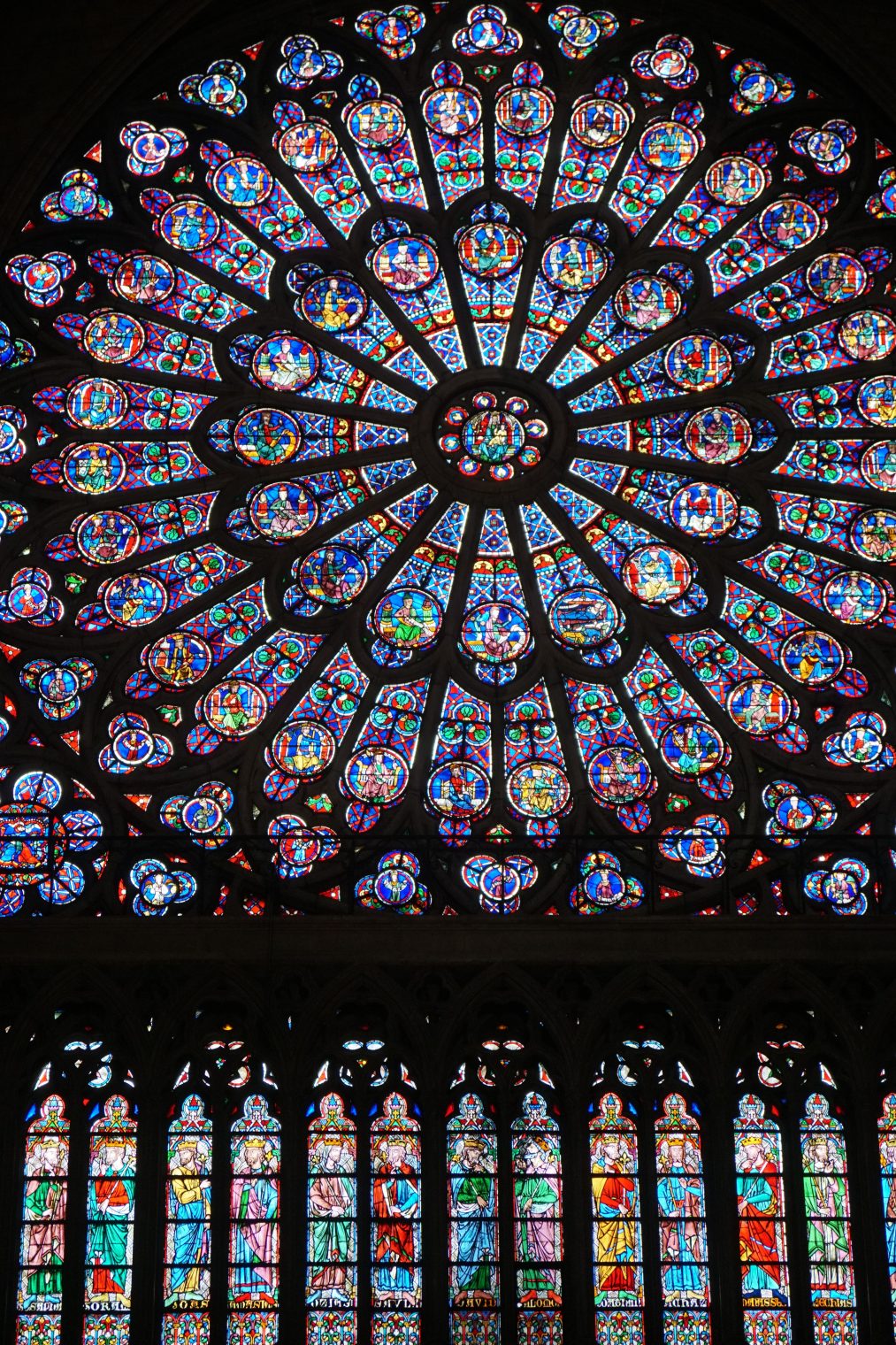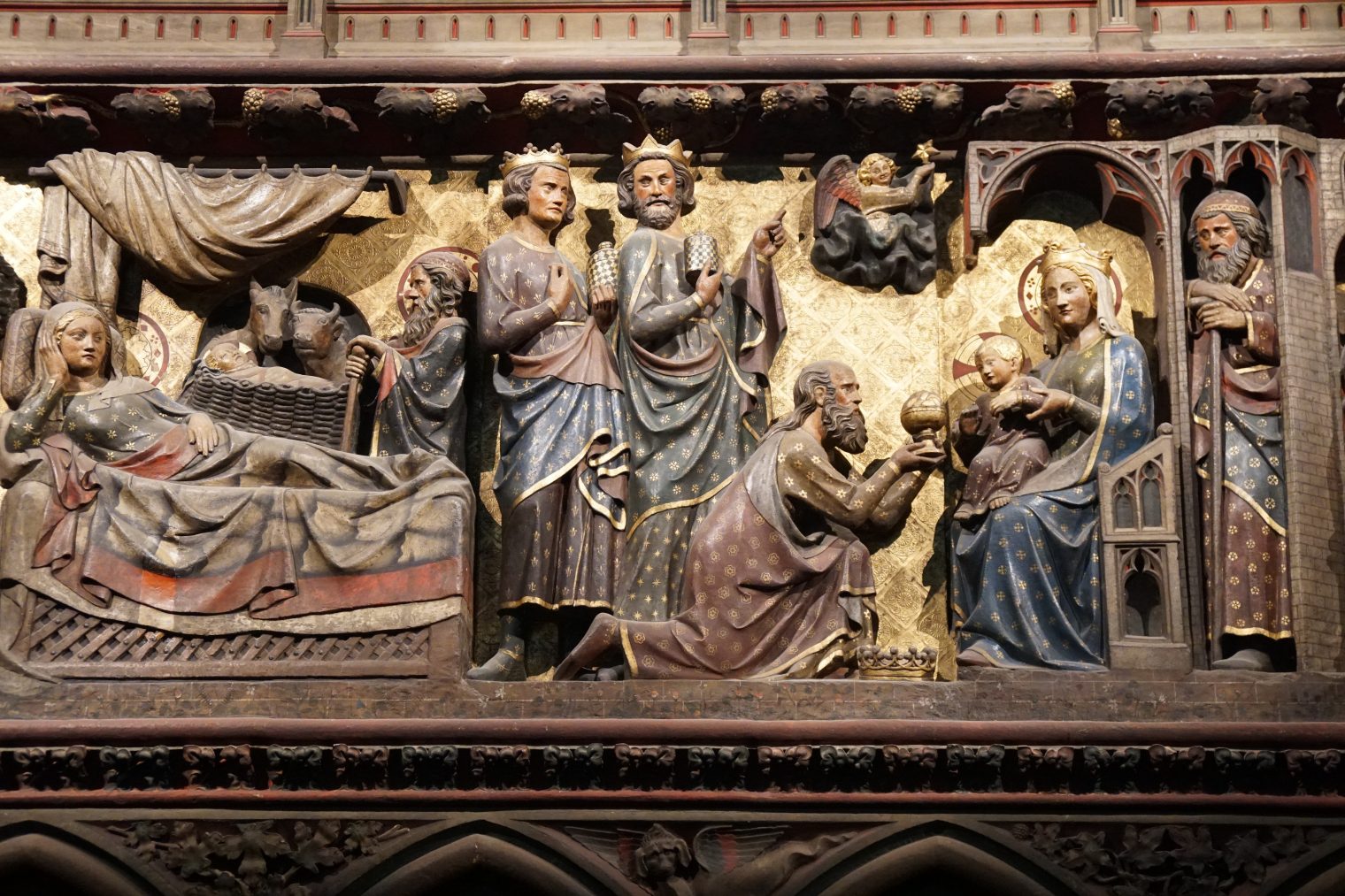Copenhagen airport shopping
Usual selection of stuff that is either illegal or unavailable in the US. Next stop: Greenland.
A posting every day; an interesting idea every three months…
Usual selection of stuff that is either illegal or unavailable in the US. Next stop: Greenland.



The same question of “How do you run a welfare state with open borders?” that Milton Friedman answered with “You can’t” remains a live one in Ireland: “The Irish are losing control of Ireland once again?” is a video that an Irish friend sent me. Gemma O’Doherty, towards the end, asks what the point was of fighting the British colonizers if Ireland ultimately will be primarily occupied by non-Irish. She also points out that one third of “social housing” in Ireland is currently occupied by non-Irish. (Not sure how this can be true since, as in America, there is a long waiting list for a free house (yet folks say that free housing is a basic human right! But if it is actually a right, why is there a waiting list? If it is not a right, why do some people get a free house?)).
Ireland is far more hostile to immigrants and asylum-seekers than the U.S. Voters eliminated birthright citizenship in 2004 with a constitutional amendment. Asylum-seekers are dumped into cramped apartments, forbidden to work, and forgotten about (except by Amnesty International, which criticizes Ireland for this). The Irish with whom I spoke thought this was brutal, but effective. “Nobody is coming here to claim asylum anymore.”
During a May/June trip to Ireland, employers and developers of rental property were the most positive regarding the merits of immigration, praising the work ethic of Eastern Europeans, for example, and noting which neighborhoods in Dublin were now primarily occupied by (rent-paying) Pakistanis.
Folks who were not able to make money as a result of immigration and population growth were less sanguine. They missed the cohesion of a society in which they could find common ground for a conversation with anyone anywhere in the country. A retired police officer sounded unhappy that pedestrian streets now had to be protected from vehicular mass murder, a requirement that he attributed to the decision to allow Muslims to emigrate to Ireland.
The places in Ireland where an immigrant might settle, i.e., the cities with jobs, are jam-packed already. Traffic in Dublin and on the surrounding highways slows to a crawl in mid-afternoon. Commuter trains are standing-room-only during weekday morning and evenings. There is no realistic Chinese-style plan to add a subway system. Here’s the situation close to 9:00 am on a weekday, when people should already be at work:
Housing is not affordable for median-income earners (see “Dublin’s Housing Crisis Reaches a Boiling Point”: “The city’s average rent as of March was up to €1,875 ($2,176) a month. This is a large amount for anyone on the Irish average monthly wage of €3,181 ($3,692) and completely impossible for anyone paid anything close to the minimum hourly wage of €9.25 ($10.74).”) As in the U.S., the government engages in every possible scheme to fight the result of Econ 101 supply and demand curves. Developers of new buildings have to give apartments to central planners for them to allocate. Housing bureaucrats conceive grand plans for “social housing,” never imagining that demand for guaranteed free housing could outstrip supply (as in the U.S., the best way to get hold of a “social housing” unit is to have a child and refrain from working).
It is unclear what it would mean to apply a fashionable American politician’s open borders policy to Ireland. The country is home to roughly 5 million people. If 1 out of every 1,000 people currently living somewhere else decided that it would be nice to move to Ireland, that would be 7.6 million immigrants (from a baseline of 7.6 billion) and the country would no longer be “Irish”.
The debate is pretty much the same as in the U.S., but with all of the numbers scaled down. People who want to exclude 98 percent of would-be migrants claim the moral high ground by contrast with those who want to exclude 99 percent. Nobody who expresses love and concern for migrants actually wants to allow everyone in, much less shelter any of them in his or her own home. The country’s welfare state offers citizens the ability to refrain from work for an entire lifetime and, indeed, for multiple generations. People don’t want immigrants to come in and use the system as designed, but they have signed high-toned international agreements promising not to discriminate when ladling out the welfare.
Related:
Based on GDP per capita, Ireland is substantially better off than the U.S. It is ahead of Switzerland and Norway, though not within sight of Singapore or Qatar.
Yet the observed lifestyle in Ireland does not seem lavish or gold-plated as it does in Switzerland. A “national road” (comparable to a state highway in the U.S.) will be the width of a North Carolina dentist’s driveway. There is no shoulder and a dirt embankment or hedge will be flush to the edge of the pavement, which is also the edge of the travel lane (see “no shoulder”). Houses are smaller than in the U.S. and systems for central and water heating, etc., seem to be more primitive (one huge plus: no mosquitoes and therefore no screens on the windows!). Public transport infrastructure is better than the U.S., but nowhere near the Russian standard (commuter rail every 15 minutes!). The country does not seem to live any wealthier than southern England, for example.
Costs for labor-intensive items, such as car or aircraft maintenance, are comparable to what people pay in the U.S. and much lower than in Switzerland. Hotels and restaurant prices are also reasonable, especially when you consider that taxes and service are included.
I spoke with several Irish guys who are frequent travelers to the U.S. They think that Ireland is a better country overall, especially for young people, due to the fact that citizens come out of university debt-free and into a strong job market. So they aren’t impressed with our infrastructure, apparently. Thanks to the cold/wet climate, nearly everyone in Ireland can afford to live close to the ocean. Oceanfront property prices are approximately 1/10th of what one might pay in Florida, for example, despite the fact that the Irish property will typically be high enough above sea level (on the rocky shore) to survive quite a bit of sea level rise. (Below, a statue in Cobh that commemorates the first person to immigrate to the U.S. through Ellis Island, but when the future was plainly brighter for a young person in the U.S.)
Our government investigators are the best (look at how the Mueller investigation, in only two years, figured out that older Americans were paying younger Americans to have sex and that Americans sought to avoid paying tax!) so I hesitate to doubt the CIA’s published GDP numbers. However, the facts on the ground don’t seem consistent with the higher-than-Switzerland purported GDP-per-capita.
The Financial Times seemed to agree with this back in 2016: “Multinationals obscure real state of Ireland’s economy; Bloated GDP data blamed on difficulty of measuring their activity.”
The good news is that, whatever the actual level of GDP per capita, Ireland is growing nicely, though property prices are not yet back to their peaks (a real estate developer told me that prices for completed structures, as opposed to undeveloped land, are now roughly where they were at the 2008 peak, but that’s in nominal dollars, not inflation-adjusted).
Full post, including commentsAt a recent barbecue I talked to a couple of Europeans, one from France and one from Romania. They’re living in Massachusetts now. Would they want to return to live in Europe? “No,” said the Romanian. “It is too violent.” The French woman agreed.
How was that possible? Doesn’t the U.S. have a near-monopoly on violence, at least if we are to believe our media? The answer was “no.” They both thought that their countries were ripe for essentially a civil war between the native Christian population (of which they had been part) and the immigrant Muslim population. They thought that large parts of their respective countries were already unsafe for non-Muslims and that the problems would become dramatically worse in the near future.
They also appreciated America’s service-oriented economy in which the customers usually is a priority. “You think that the French hate Americans because of the way you get treated in shops,” said the former Parisienne, “but they treat us the same.”
They considered the cost of living in Europe to be dramatically higher than the U.S., even more than could be explained by the VAT (consumption tax). “I have a friend who is a nurse and her husband is an architect,” said the French woman. “They live just above what we would consider the poverty line.”
What was good about Europe? “The vacations, the ability to relax and enjoy life, the social contacts.”
Related:
One thing that isn’t unionized in the European Union is regulation of aviation. All of the member nations belong to the ICAO and there is an EU agency (EASA) that does most of the same stuff as our FAA. However, there is yet another layer of regulation on a per-country basis. “They can’t be less restrictive than ICAO, but they can add restrictions,” said a local pilot. “Every time a plane takes off, the Irish Aviation Authority considers that it has failed.”
It sounds reasonable for a country to have its own FAA-style agency. But Ireland’s population is 4.7 million. Should Metro Atlanta or South Carolina have its own FAA? Estonia, with a population of 1.3 million, also has its own aviation regulatory authority (can there be more than a handful of airplanes based in Estonia?).
Full post, including commentsOn a recent trip to Ireland I visited National Flight Centre, one of the country’s two full-scale flight schools.
Lufthansa decided to abandon cloud-plagued Germany and train all of its ab initio pilots in Arizona. How can it work to learn to fly in Ireland, famous for rain?
One part of the answer is simulator time. The school has several sophisticated non-motion sims, one of which has a full 737-800 cockpit (Ryanair uses this plane). Of the 220 required hours of training for a “frozen ATPL“, 80 may be accomplished in a simulator. (On reaching 1,500 hours of flying experience, presumably gained in the right seat of a B737 or A320, the ATP becomes “unfrozen”.)
Students start as young as 17, though roughly half already have college degrees. They pay 82,000 euros for an 18-month program and, upon graduation, can work for any airline within the EASA umbrella (all of Europe, Turkey, etc.; does not include Qatar, Dubai, or China, all of which would require a license conversion). Starting salary at Ryanair for these 140-hour heroes is roughly 70,000 euros per year (depends on the base). Other European airlines pay in the same ballpark.
(What about Americans who want to escape the cruel dictatorship of Donald Trump? The American ATP can convert by doing 650 hours of home study through National Flight Centre, taking 14 exams (on site), and getting an Irish Class 1 medical. Budget for two trips to Ireland, a couple of weeks on the ground there total, and less than $10,000 out of pocket.)
Job prospects currently are awesome, with Ryanair alone hiring nearly 1,000 pilots per year.
The school is very well-organized, comparable to the best university-run U.S. schools. Instructors are a mixture of young enthusiasts and retired airline captains. Airplanes are dispatched with a GPS tracker and a flat-screen TV next to the front desk shows all aircraft positions. A web-based system keeps track of every lesson and the instructor’s evaluation. There is a nice restaurant overlooking the runway for relaxing between classes.
(It is vastly more difficult to start an airline career in the U.S. due to the 1,000/1,500-hour minimum. Also, the first job for a white or Asian male U.S. pilot will be in a regional jet, not a Boeing or Airbus (opportunities are better for members of victim groups, but there is no relief from the statutory minimum hours requirement).)
More: nfc.ie
Related:
My hosts in Ireland have four children, the youngest of whom is just graduating from high school. He is studying like a demon for a high-stakes “Leaving Certificate” exam. All of the responses are to be written out (i.e., it is not multiple-guess like the SATs). He will spend 10 days taking exams, typically one in the morning and one in the afternoon. Who could possibly have time to grade these? “The teachers do it during their summer vacation,” he said.
Results don’t come in until August at which point the student is informed of his or her university assignment. In other words, the young learner potentially has only one month in which to move, find an apartment, etc. (most students select universities close to their parents’ houses and continue to live at home)
There is no room for an admissions committee looking at auguries. There is no preference for children of alumni. There is no preference for children of big donors. There is no way to bribe an athletic coach because there is no preference for sports potential (though my hosts thought that there was some preference for athletes who’ve represented the country at international events).
How can they run a university admissions system with no special provisions for those who have suffered from adversity? They apparently can’t! Ireland has the “HEAR scheme“:
The scheme aims to improve access to college for school-leavers from socio-economic backgrounds that are under-represented in third-level education. Under the HEAR scheme a number of third-level places are allocated to school-leavers on a reduced points basis. To be eligible for the scheme you must meet certain indicators or criteria related to your financial, social and cultural circumstances…
There are links from the above web page explaining the criteria, but essentially your family has to be on welfare (a low bar; roughly 40 percent of residents are on some form of welfare) and/or your parents have to either not work (“housewife”) or do an unskilled job. Skin color or ethnic background is not a factor.
What does welfare look like in a society that is, on a per-capita basis, now much more productive than the U.S. (CIA Factbook ranking)? A retired police detective explained that he rents a small-town house to a “town council” for 750 euros per month on a 10-year lease. They’ll likely buy it from him when the lease ends. The town gives it away free to a family with five children in which neither parent has ever worked. “I know the family; nobody has worked for the past three generations,” said the former policeman. “Once they get on social welfare, why would they?” (I also learned that the front-line officers in Ireland who deal with day-to-day issues don’t carry guns).
Welfare bureaucrats occupy an office in the nicest part of what the guidebook says is the nicest seaside village in Ireland (Kinsale):
What does college look like for those who score high? (or who score reasonably high and have parents who don’t work?) Dodging tourists at Trinity College:
“An idea that is not dangerous is unworthy of being called an idea at all,” from Oscar Wilde is supposed to inspire the young scholars. Does that exclude most scientific and engineering advances? What is “dangerous” about Katherine Clerk Maxwell‘s equations? Are today’s T-shirt decorations not worthy of being called “an idea”? How about the “waves can propagate through a vacuum (without ether)” concept of Margaret Hemingway and Imbella A. Birdsall, confirmed in the Michelson–Morley experiment. That’s not an “idea”? Or it is somehow “dangerous”?
Full post, including commentsOne of the joys of traveling in Europe is being forced to watch what they call “football” (i.e., soccer). Tonight is the UEFA Champions League final. From a high level, it looks to me like a group of adults acting out a scene more familiar from preschool: running around a field grabbing each other’s shirts.
Why is shirt-grabbing allowed in this game? Doesn’t it degrade the quality of the experience for all involved? The skills of a soccer player are supposed to be kicking, passing, seeing openings, etc., not grabbing someone else’s shirt, no?
Full post, including commentsHere are some photos from a 2016 visit to the Notre-Dame de Paris, a time when it seemed like the worst threat to the cathedral was a plague of tourists.




Sad, obviously, but Moscow rebuilt a huge cathedral in modern times. So let’s hope that it can be done.

Related:
“The United Kingdom Has Gone Mad; The problem with holding out for a perfect Brexit plan is that you can’t fix stupid.” (nytimes) is by Thomas Friedman, a guy whom nobody can accuse of being stupid (he married the daughter of a billionaire and lives (large) in Maryland, an awesome jurisdiction for divorce litigants who can claim to be the less wealthy spouse).
What I can’t figure out how it is logically consistent for Americans to criticize the Brits for wanting to be independent and fully sovereign. We spend way more money on our military than would be necessary to prevent an invasion from Canada or Mexico. Why are we spending that money if not to preserve full sovereignty and not have to listen to anyone else in the world?
From a strictly dollars and cents point of view, if being part of the E.U. is so great,why doesn’t the U.S. seek to join? In our age of telecommunications, container shipping, and air travel (preferably by Airbus!), geography should not be a barrier.
If we want to say that anyone in the UK who opposes EU membership is “stupid”, as the giant brains of the NY Times have concluded, shouldn’t we also be trying to become part of the EU ourselves?
Full post, including comments